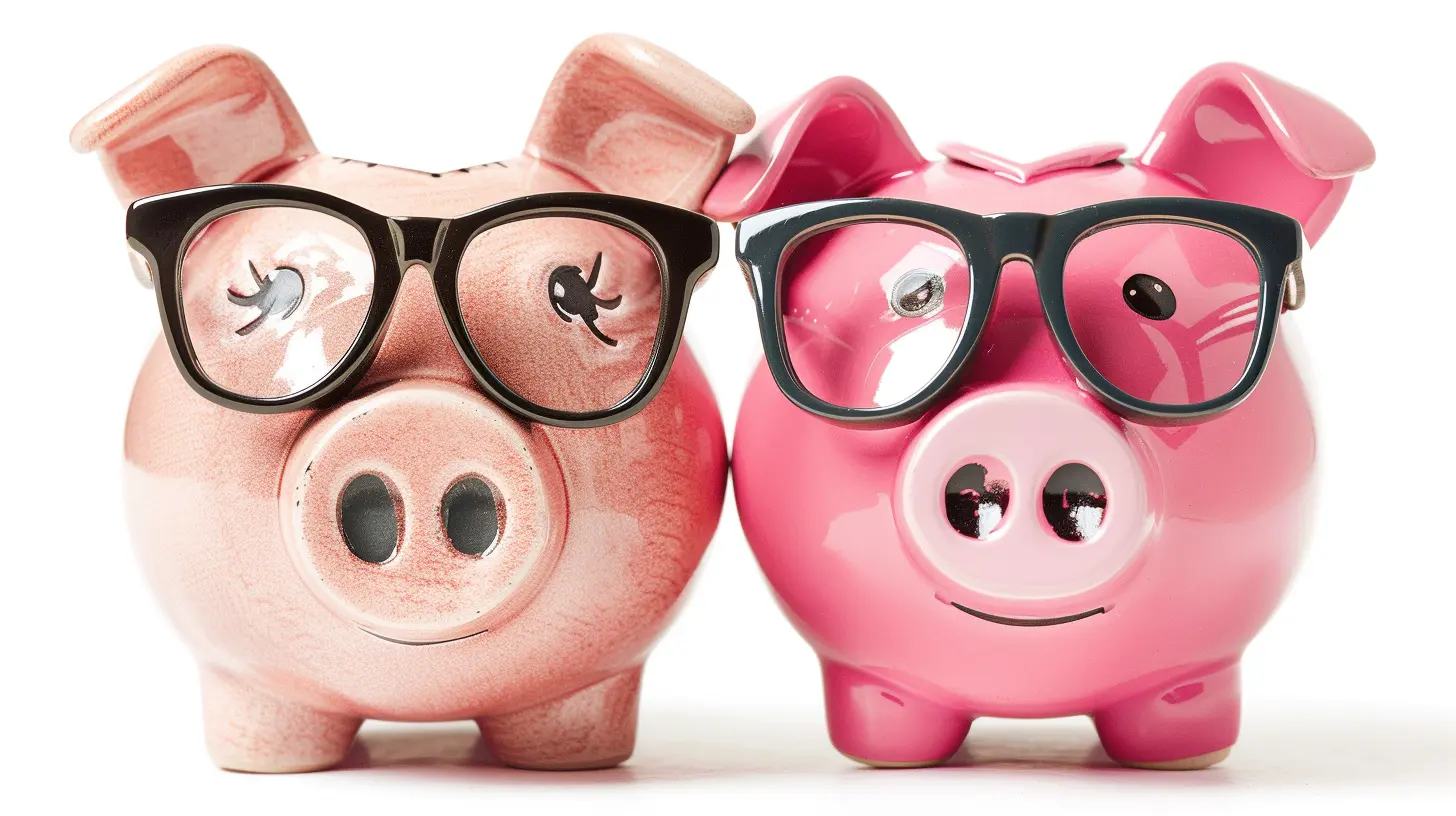18 January 2025
When it comes to securing your financial future, the big question is simple: Pension funds or personal savings? But the answer? Not so much. Both play crucial roles in ensuring you're comfortable during your retirement years, but deciding which should take priority isn’t a one-size-fits-all situation. It depends on your circumstances, goals, and how you envision life after work. No worries—I'm here to break it all down for you.
Ready to dive in? Let's get into the nitty-gritty of pensions and personal savings, compare their benefits, and help you decide which should take the spotlight in your financial plan. 
What Are Pension Funds?
Before we get into the "versus" bit, let’s first understand what pension funds are. In simple terms, a pension fund is a pot of money that you (and often your employer) contribute to during your working years. The goal? To give you a steady income once you retire.There are two main types of pension funds:
1. Defined Contribution Plans (e.g., 401(k) in the US): You and your employer contribute money into your pension plan, which is then invested. The payout depends on your contributions and how well those investments perform.
2. Defined Benefit Plans: Here, your employer guarantees you a specific amount of money monthly during retirement, based on factors like your salary and years of service. Think of these as the “golden oldies” of pension plans—they’re less common nowadays.
Sounds good, right? But don’t celebrate just yet. Pension funds aren’t bulletproof, and there are pros and cons to consider.
The Pros of Pension Funds
- Automatic Contributions: Out of sight, out of mind! Your employer deducts a portion of your salary and deposits it straight into your pension fund, which means no temptation to spend it.- Employer Match: Many employers sweeten the deal by contributing to your pension fund. Free money? Yes, please!
- Tax Advantages: Pension contributions are often tax-deferred, reducing your taxable income today, and you only pay taxes when you withdraw the money in retirement.
- Peace of Mind: Let’s be honest, knowing you'll have a regular income in retirement can help you sleep better at night.
The Cons of Pension Funds
- Lack of Control: Once your money is locked in a pension fund, you don’t have much say in how it’s used or invested. That can be frustrating.- Risky Business: If your pension relies on investments, its growth is subject to market fluctuations. A bad year in the stock market could hurt your retirement income.
- Early Withdrawal Penalties: Need money before retirement? Good luck. Withdrawing early usually comes with hefty penalties.
- Employer Dependency: Your pension might take a hit if your employer goes out of business or changes their contribution policies.
Now that we’ve covered pensions, let’s talk about their competitor—personal savings. 
What Are Personal Savings?
Picture this: Your personal savings are like a “choose your own adventure” game for your money. Unlike pension funds, you’re completely in control—whether it’s in a regular savings account, a high-yield account, or even investments like IRAs or stocks.The idea is simple: The more you save now, the more financial flexibility you’ll have later in life. But is it really worth prioritizing personal savings over pensions? Well, let’s weigh the pros and cons.
The Pros of Personal Savings
- Total Control: You decide where your money goes, how much you save, and how accessible it is. It’s your money, your rules.- Flexibility: Whether it’s for emergencies, vacations, a house, or retirement, you can use the money however you see fit. No strings attached.
- No Employer Dependency: Unlike pensions, you’re not relying on your employer to pitch in—everything is in your hands.
- Compound Growth: If you invest, your money can grow significantly over time thanks to compound interest. The earlier you start, the more powerful this effect becomes.
The Cons of Personal Savings
- Discipline Required: Let’s be real—saving money is hard. Life throws curveballs (like that irresistible sale on the latest gadget), and it takes discipline to resist spending.- No Free Money: Unlike pensions with employer matches, personal savings rely entirely on you. If you don’t save, no one’s going to do it for you.
- Tax Implications: Depending on how and where you save, you might have to pay taxes on your interest or investment returns.
- Inflation Risk: Keeping your money in a low-interest savings account may not keep up with inflation, causing the value of your savings to shrink over time.

Pension Funds vs. Personal Savings: The Key Differences
Now that you have a good understanding of pensions and personal savings, let’s put them head-to-head in terms of control, accessibility, growth, and risk.| Feature | Pension Funds | Personal Savings |
|-------------------------|------------------------------------------|------------------------------------------|
| Control | Limited control over investments. | Full control—save and invest as you wish.|
| Accessibility | Locked until retirement; penalties for early withdrawals. | Accessible anytime (depending on type). |
| Growth Potential | Can grow long-term via employer contributions and investments. | Depends on how well you save or invest. |
| Risk | Employer or market-dependent risks. | Inflation and self-discipline risks. |
| Tax Benefits | Tax-deferred contributions. | Taxable depending on account type. | 
Which Should Take Priority?
Okay, here’s the million-dollar question: Should you focus on building your pension fund or prioritizing personal savings? The answer? It depends on your situation. Let’s break it down a little further:Prioritize Pension Funds If:
- Your Employer Offers a Match: If your employer is willing to match your contributions, don’t leave free money on the table. It’s an instant return on investment.- You Struggle Saving on Your Own: If you know you’ll spend every penny unless it’s automatically deducted, a pension fund is your best bet.
- You Want a Predictable Income in Retirement: Pensions provide you with a structured way to save for retirement, often ensuring regular income.
Prioritize Personal Savings If:
- You Value Flexibility: If you want access to your money anytime and for any purpose (not just retirement), personal savings should take priority.- You’re Debt-Free: Paying off high-interest debt is usually more urgent than contributing to a pension. Once you’re debt-free, personal savings can help you build an emergency fund.
- Your Pension Contributions Are Already Maxed Out: If you’re hitting your employer’s matching limits, funneling extra money into personal savings or investments makes sense.
- You Enjoy Investing: If you’re financially savvy and confident in the stock market, personal savings allow you to grow your wealth more dynamically.
Why Not Both?
Here’s a wild thought—why not strike a balance between the two? Contributing to your pension fund while also building personal savings is often the smartest move. It’s like diversifying your financial portfolio: you spread the risk and reap the rewards of both strategies.Start with your employer’s pension match (because free money rocks!) and then set aside a percentage of your income for an emergency fund or other financial goals. Once you have a solid savings foundation, increase your pension contributions or explore other investment opportunities.
Final Thoughts
At the end of the day, the "Pension Funds vs. Personal Savings" debate isn’t about picking one over the other—it’s about aligning your financial priorities with your goals. Think about where you are now, where you want to be, and what steps will get you there. Remember, everyone’s journey looks different, and that’s okay.Here’s the bottom line: Both pensions and personal savings are critical tools in your financial toolkit. By leveraging them wisely and balancing their strengths, you can build a future that’s not only secure but also full of the freedom you deserve.












Zyana McIntire
Great insights! Balance is key for a secure financial future!
February 20, 2025 at 1:25 PM